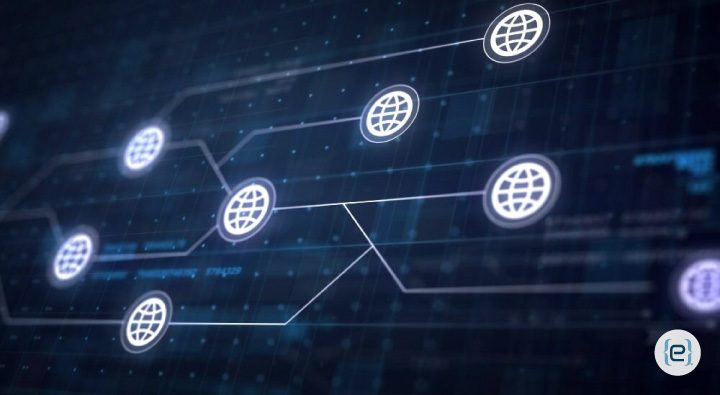The Domain Name System (DNS) is one of the basic building blocks of the internet, yet most people outside tech circles don’t realize they use it every day. At the end of the day, DNS is a phonebook for the internet that translates human-readable domain names like example.com into IP addresses such as 192.168.1.1 which computers need to communicate with all other systems online.
What is DNS?
DNS is a domain name system that translates domain names to IPs. When you type a URL in your browser, like www. eExample.com, the DNS service guides a browser to the correct server for a domain name by matching the domain address with its IP address. This enables you to operate on the internet with no stress about which IP addresses need to be directly included.
The worldwide network of DNS servers forms an infrastructure that is diverse, and includes name servers for different designations — including root servers and DNS resolvers. These servers help a domain name to be resolvable with an IP address, and it helps you navigate easily through the internet.
How does DNS work?
- Ask the Recursive Resolver: Your browser makes a DNS query to a recursive resolver (most likely run by your ISP or public DNS like Google or Cloudflare). The job of the resolver is to find the right IP address for the domain being requested.
- Query Cache: Resolver checks its cache to verify whether the resolver has any recent response for the domain. If it does, the browser is given the IP address, and no further lookup takes place. Confirmation > Otherwise goes to the next Segment
- Root Server Query: The resolver asks one of the 13 root DNS servers what TLD server (for.edu or.com, etc.) and gets back the TLD server. com, delegating the domain as per DNS.
- Root Server Response: The resolver then asks one of the 13 root servers to direct it to the TLD server of the domain extension (ex. com, would send the query to a. com TLD server).
- TLD server response: A TLD server returns the authoritative name server for that specified domain — such as the name server responsible for managing example.com).
- Resolver: Resolver queries this server to get to the final answer.
- Get the IP Address: The respective name server gives you the IP address for that domain. The recursive resolver subsequently caches this IP address and furnishes it back to the web browser.
- Website Connection: Fueled by the right IP address, the browser now connects to the server on which the website is hosted.

Advantages of DNS Technology
- User-Friendly Navigation: The second role of DNS is to simplify things for end-users on the internet. You do not have to type thousands of numbers (IP addresses) to visit a website; instead, you simply enter a domain name like Google.com or amazon.com. Without DNS, navigating the web would be much more difficult.
- Caption Load Balancing and Distribution of Traffic: DNS is also used to route Internet traffic properly. It is common for big websites, including social media networks and online stores, to use numerous servers to process load. DNS distributes incoming requests to multiple servers via round-robin DNS, thereby providing load balancing and faster response. You will need this type of capability, particularly in high-traffic events (like Black Friday sales, or live streaming events) when millions of users might be hitting a site concurrently. DNS routes users to servers, preventing significant delays and fewer service failures.
- Scalability and Redundancy: As the internet grows, DNS is designed to be highly scalable. The hierarchical model, and the fact it is distributed, enable DNS to process billions of queries every day while sharing load among millions of servers throughout the world. This scalability is important to continue expanding the internet and introducing new domain names into it. DNS also provides redundancy. If one server crashes or is unavailable, the DNS request will be redirected to another working server, enabling users to easily reach services and websites without any interruption.
- Security with DNSSEC: DNS was not originally designed with security as a requirement, so it is susceptible to attacks like DNS spoofing or cache poisoning. In these types of attacks, an attacker sends you to a malicious site by providing false DNS information. DNS Security Extensions (DNSSEC) were a response to these concerns. DNSSEC is a layer of security that tries to offer both the DNS zone operator and all those requesting them information that lets everyone know when those responses are verified. This ensures that users are getting a legitimate DNS response and are not being redirected to some fake/malicious site.
- Content Delivery Networks (CDNs): DNS is a fundamental need for Content Delivery Networks (CDNs), so page performance can be optimized by delivering content instantly to users worldwide. CDNs rely on DNS to direct users to servers distributed around the globe, making sure content is served from a server near the user. This decreases latency and enhances UX. In turn, this is beneficial for activity like watching high data-consuming items, such as video streaming, in addition to downloading large-sized files.
- Important for Internet of Things (IoT): There is also a significant dependency on DNS for the relatively new, but rapidly expanding Internet of Things (IoT). As more things connect to the Internet, from smart fridges to security cameras, DNS plays a crucial role in looking after this fleet of IP addresses and ensuring that they talk to one another.
Trained professionals from eMazzanti are happy to help you navigate through these and other IT-related issues.







